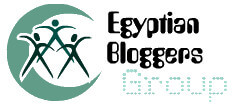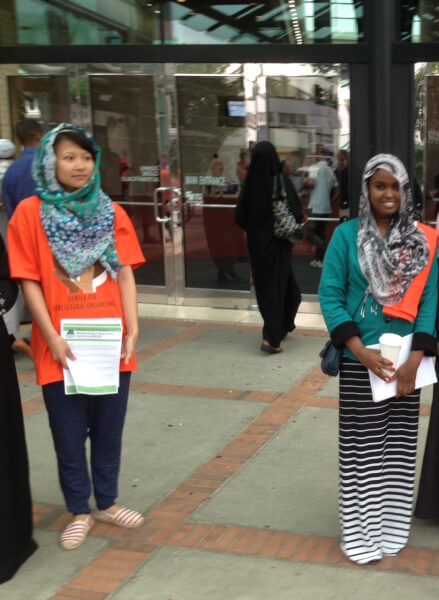The Cairo Institute for Human Rights Studies has condemned the Government of Egypt for flogging a blogger who allegedly criticized Islam, and for banning travel to critics of government policies.
Here are the two press releases from the CIHRS:
A Serious Violation to the Constitution and a New Way to Harass Democracy Advocates

The undersigned organizations condemn the recent decisions to ban some democracy advocates from traveling, based on decisions by the investigative judge in the “foreign funding case.” Thus, the undersigned organizations reject the arbitrary travel bans without providing justifications , even if it has the guise of a judicial decision, and call for the lifting of the travel bans and revocation of these decisions immediately, as well as ending all harassment of human rights defenders and civil society organizations and their staff. The undersigned organizations also request a pluralistic atmosphere that allows the freedom for civil society organizations to carry out their action, especially their preparation to monitor the parliamentary elections scheduled for March and April 2015.
On December 5th2014, Hossam al-Din Ali, Chairman of the Egyptian Democratic Institute and his deputy Ahmed Ghoneim were surprised to find their names included on the travel ban list, a piece of information they received while at Cairo airport on their way to attend several Arab and international events related to human rights and democratization. According to a statement issued by the Egyptian Democratic Institute, the travel ban decision is predicated on a judicial investigation in connection to “the foreign funding case” dating back to 2011. In statements to the undersigned organizations, both Ali and Ghoneim mentioned that it took them several weeks to find the reasons they were prevented from traveling, and, until the release of this statement, they had not received an official summon by the investigating judge for questioning in said case.
Activist Israa Abdel Fattah, who previously worked in the same organization as Ali and Ghoneim, and is now in charge of the digital section in Al-Youm Al-Sabe‘ Newspaper, was also prevent from traveling. While checking-in at Cairo airport to travel, security personnel stopped her and communicated to her an order banning from traveling based on a decision issued by the investigating judge.
The decision to ban democracy advocates Hossam al-Din Ali, Ahmed Ghoneim and Israa Abdel Fattah from traveling comes in the wake of a fierce crackdown by state agencies against civil society, which culminated in the Ministry of Social Solidarity ultimatum, giving NGO’s until November 10th 2014 to complete mandatory registration with the Ministry and warning that such organizations would face the threat of closure and imprisonment of their founders if they did not comply with the repressive NGO law, No 84 of 2002. Even though civil society organizations are still operating and none of them has been subject to official closure yet, despite attempts to restrict their action and constantly defame them, the recent travel ban decisions reveals that the state is now resorting to other methods in order to suppress civil society organizations and harass their staff, which exposes ongoing attempts to get rid of some civil society organizations.
The method with which the travel ban decisions against the three advocates were issued sheds light on the total absence of the rule of law. The legal proceedings leading up to these decisions are completely obscure. The advocates weren’t formally summoned to appear before the investigating judge, nor are they aware of the charges brought against them. The time frame during which those decisions are effective is also unclear. In the absence of transparency and an independent investigation, it is unknown whether other travel ban decisions would be issued against other activists and human rights defenders, and the justifications upon which those decisions were based were not put forward. It is worth mentioning that similar decisions had been issued against a number of political activists including Dr. Amr Hamzawy and Dr. Mustafa al-Najjar, ex People’s Assembly members, and political activist Asmaa Mahfouz, who were banned from travel almost a year ago without being called up to investigation until today. Thus one is led to believe that such decisions are only meant to harass dissenting opinions and to be a form of punishment without a court ruling.
The undersigned organizations assert that these decisions are in direct contradiction with article 62 of the constitution, which requires travel bans include a justification and a time frame. Needless to say, this decision also violates article 54 of the constitution which ensures that the rights of the citizens should be protected from the state authorities, and whomever is subject to any limitation of said rights should be informed immediately with the decision, its legal justification and its time frame. This did not happen in these cases.
The proceedings related to the case of foreign funding, which is the stated reason behind the travel bans, began in 2011 on the basis of a large scale media smear campaign whereby several human rights defenders were charged with allegations meant to discredit and defame them. Members of the Supreme Council of the Armed Forces, the military junta governing Egypt at that time, participated in the smear campaign, going as far as accusing them of high treason and receiving foreign funds with the purpose of implementing foreign agendas to spread chaos in Egypt. The campaign included judicial investigations and the summoning of several human rights defenders for interrogation. The crackdown was unprecedented, whereby security forces stormed the headquarters of a number of international and Egyptian organizations, confiscating their computers and documents, and the referral of 43 Egyptian and expatriate staff members to Criminal Court and culminating in sentences of prison terms ranging between one and five years suspended sentences.
It is also noteworthy that the former Assistant to the Minister of Justice mentioned on March 24th 2013, before a plenary session of the Shura (Consultative) Council, that the issue of foreign funding has not been closed yet and that the “investigation is still underway with regard to the Egyptian organizations, and an investigating judge delegated by the President of the Cairo Appeal Court is carrying out the investigations”.
Signatories to this statement express their shock as to the continued harassment of human rights defenders and civil society organizations at a time when the country is preparing for a new round of parliamentary elections scheduled to take place this coming March and April. At a time when the State should be setting the stage for the elections within an environment of political pluralism and freedom, it instead attacks some of the most important actors in the electoral process, those who are working to raise voter awareness and monitor the electoral process.
Saudi Arabia Flogs a Citizen and Egypt Imprisons another for ‘Offending Islam’
Bahey El Din Hassan, Cairo Institute for Human Rights Studies (CIHRS) Director, stated that there is no qualitative difference between the position of terrorist groups and that of some Arab governments regarding freedom of expression; the difference is only quantitative, but both stem from the same logic that does not visualize coexisting with a minimum margin of freedom of expression.
Hassan made this statement in the wake of a meeting held yesterday in Geneva with Zaid Ra‘ad, United Nations High Commissioner for Human Rights and a delegation of the International Federation for Human Rights headed by Karim Haji, and including Elham Seoudi (Libya), Amena Bo Ayyash (Morocco), Shaawan Jabarin (Palestine) and Khadija al-Sharif (Tunisia).
Mr. Bahey explained that in the same week that witnessed the killing by a terrorist group of 10 French journalists at the headquarters of the “Charlie Hebdo” satirical newspaper in Paris, based on the allegation of “offending Islam”, Saudi Arabia punished blogger Raef Badawi accused of “offending Islam” with 50 lashes administered in public as the first round of a punishment of one thousand lashes and ten year-imprisonment, then a further travel ban for ten years if he survives! He was also fined 1 million riyals (approx. $260, 000). During the same week, Egyptian blogger Kareem Ashraf received a three-year sentence after being charged with the same crime of “offending Islam”! Everybody seems to be invoking the same extremist religious discourse.
The meeting with the High Commissioner for Human Rights broached the deplorable human rights situation in the Arab world in general, and in Egypt, Palestine and Bahrain in particular. The meeting also addressed growing threats against the rights of individuals and peoples as a result of escalating terrorist attacks, and shed light on the close interdependence between authoritarian regime practices which drive youth – from the ranks of either Islamists or secularists – toward extremism and the rejection of peaceful political action on the one hand, and the rapid growth of terrorist organizations on the other. The meeting stopped at length to contemplate the harassment of human rights defenders in some Arab countries, especially Egypt and Bahrain, through for instance politicized trials, fabricated accusations, imprisonment, travel bans, police restrictions on the exercise of human rights defense activities and on bank accounts of organizations, as well as death threats and arrests.


- Israelisnipers shooting and killing hospital workers in Gaza - December 11, 2023
- CAIR Condemns Israeli Executions of Wounded, Unarmed Palestinian in West Bank - December 11, 2023
- Arab and Muslim American voters face a “simple choice” between Biden’s inhumanity and Trump’s edgy politics - December 9, 2023
























